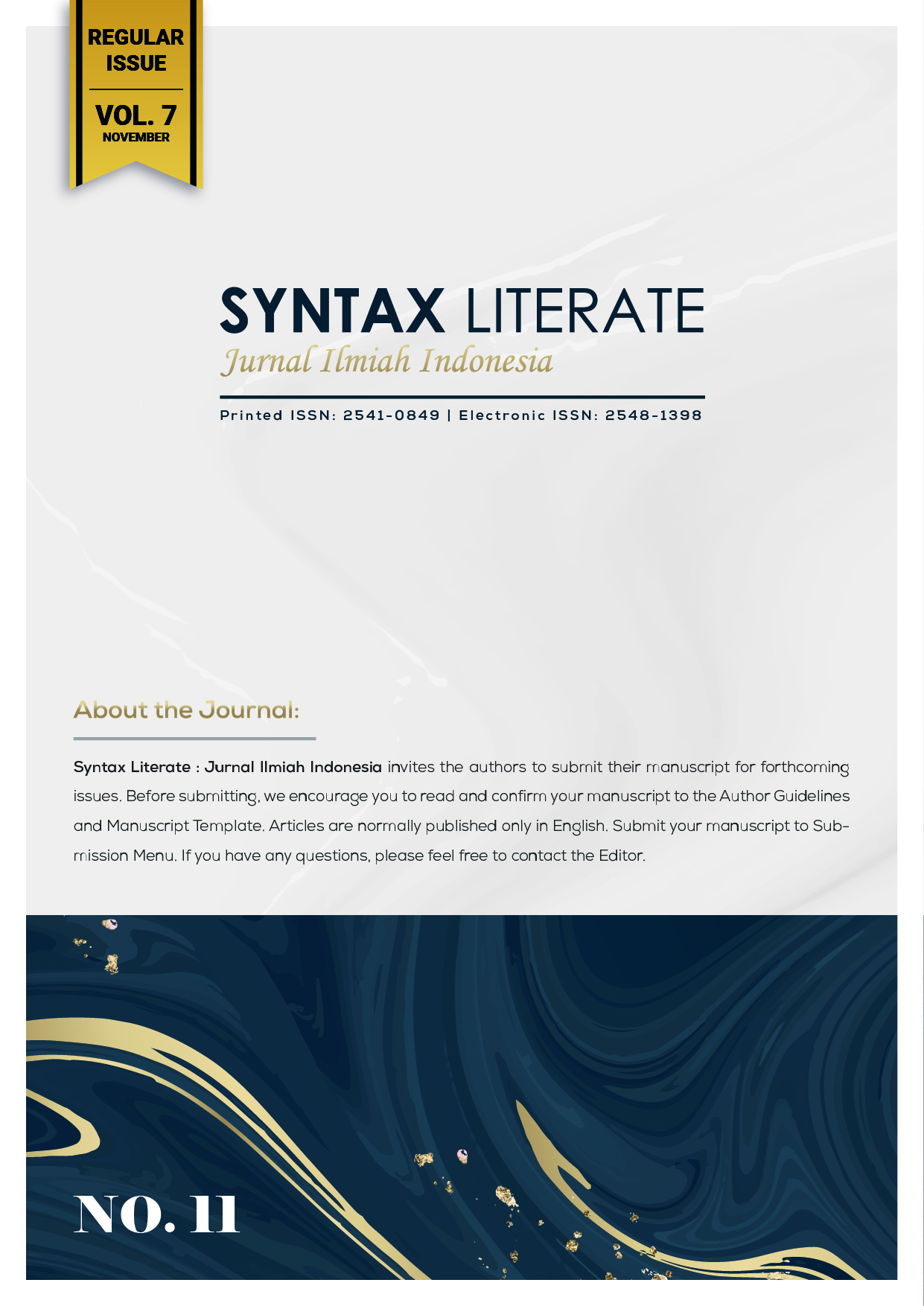Literature Review Platform Digital Sebagai Media dalam Mengembangkan Usaha Mikro Kecil Menengah
Abstract
There are now more opportunities available than ever before as the digital revolution continues to permeate every sector of the economy. The resource-based perspective hypothesis asserts that digital transformation improves both innovative capabilities and the overall performance of businesses. Due to the proliferation of small and medium-sized firms (SMEs) and the relatively significant role they play in the economy of the local community, the current digital age is fraught with a number of challenges that have arisen as a result. The key challenges that small and medium-sized enterprises (SMEs) have when attempting to digitalize their operations include a lack of cash resources, low knowledge resources, and limited grasp of technology concepts. Digital platform built on an ecosystem that assists small and medium-sized organizations in better adapting to settings that are unpredictable and changing by combining key information sources and personalizing internal and external resources.
Downloads
References
A. Cozzolino, L. Corbo, and P. Aversa. (2021). Digital platform-based ecosystems: The evolution of collaboration and competition between incumbent producers and entrant platforms. J. Bus. Res., vol. 126, pp. 385–400.
Australia. (2019). Productivity Commission, and New Zealand Productivity Commission, Growing the digital economy in Australia and New Zealand: maximising opportunities for SMEs.
B. Schönfuß, D. McFarlane, G. Hawkridge, L. Salter, N. Athanassopoulou, and L. de Silva. (2021). A catalogue of digital solution areas for prioritising the needs of manufacturing SMEs. Comput. Ind., vol. 133, p. 103532.
F. Taghizadeh-Hesary, H. Phoumin, and E. Rasoulinezhad. (2022). COVID-19 and regional solutions for mitigating the risk of SME finance in selected ASEAN member states. Econ. Anal. Policy, vol. 74, pp. 506–525.
G. Kou et al. (2021). Bankruptcy prediction for SMEs using transactional data and two-stage multiobjective feature selection. Decis. Support Syst., vol. 140, p. 113429.
J. Cenamor and J. Frishammar. (2021). Openness in platform ecosystems: Innovation strategies for complementary products. Res. Policy, vol. 50, no. 1, p. 104148.
K. S. R. Warner and M. Wäger. (2019). Building dynamic capabilities for digital transformation: An ongoing process of strategic renewal. Long Range Plann., vol. 52, no. 3, pp. 326–349.
Kemenkeu, “Pemerintah Terus Perkuat UMKM Melalui Berbagai Bentuk Bantuan,†Jan. 31, 2023. Https://Www.Kemenkeu.Go.Id/Publikasi/Berita/Pemerintah-Terus-Perkuat-Umkm-Melalui- Berbagai-BentukBantuan/.
L. R. G. Fitz, M. Scheeg, and J. Scheeg. (2022). Amplifying Human Factors in the Inquiry of SMEs’ Needs in Digitalization Collaborations with External Service Providers. Procedia Comput. Sci., vol. 200, pp. 595–601.
M. Škare and D. R. Soriano. (2021). A dynamic panel study on digitalization and firm’s agility: What drives agility in advanced economies 2009–2018. Technol. Forecast. Soc. Change, vol. 163, p. 120418.
OECD. (2021). Entrepreneurship in Regional Innovation Clusters: Case Study of Chiang Mai and Chiang Rai, Thailand. OECD.
OECD. (2021). The Digital Transformation of SMEs. OECD
P. Artin. (2022). Critical sustainability factors of regional SMEs; A case study of regional Australia. Curr. Res. Environ. Sustain., vol. 4, p. 100138.
S. Adomako and M. Ahsan. (2022). Entrepreneurial passion and SMEs’ performance: Moderating effects of financial resource availability and resource flexibility. J. Bus. Res., vol. 144, pp. 122–135.
S. H. Permana. (2022). MEMBANGUN EKOSISTEM DIGITAL BAGI PENGEMBANGAN USAHA MIKRO, KECIL, DAN MENENGAH. p. 6.
S. Hosseini, G. Fallon, V. Weerakkody, and U. Sivarajah. (2019). Cloud computing utilization and mitigation of informational and marketing barriers of the SMEs from the emerging markets: Evidence from Iran and Turkey. Int. J. Inf. Manag., vol. 46, pp. 54–69.
T. Papadopoulos, K. N. Baltas, and M. E. Balta. (2020). The use of digital technologies by small and medium enterprises during COVID-19: Implications for theory and practice. Int. J. Inf. Manag., vol. 55, p. 102192.
T. Sengupta, G. Narayanamurthy, P. K. Hota, T. Sarker, and S. Dey. (2021). Conditional acceptance of digitized business model innovation at the BoP: A stakeholder analysis of eKutir in India. Technol. Forecast. Soc. Change, vol. 170, p. 120857.
X. Xie, Y. Han, A. Anderson, and S. Ribeiro-Navarrete. (2022). Digital platforms and SMEs’ business model innovation: Exploring the mediating mechanisms of capability reconfiguration. Int. J. Inf. Manag., vol. 65, p. 102513.
Z. Yang, J. Chang, L. Huang, and A. Mardani. (2021). Digital transformation solutions of entrepreneurial SMEs based on an information error-driven T-spherical fuzzy cloud algorithm. Int. J. Inf. Manag., p. 102384.
Copyright (c) 2022 Mario Pradana Putra

This work is licensed under a Creative Commons Attribution-ShareAlike 4.0 International License.











